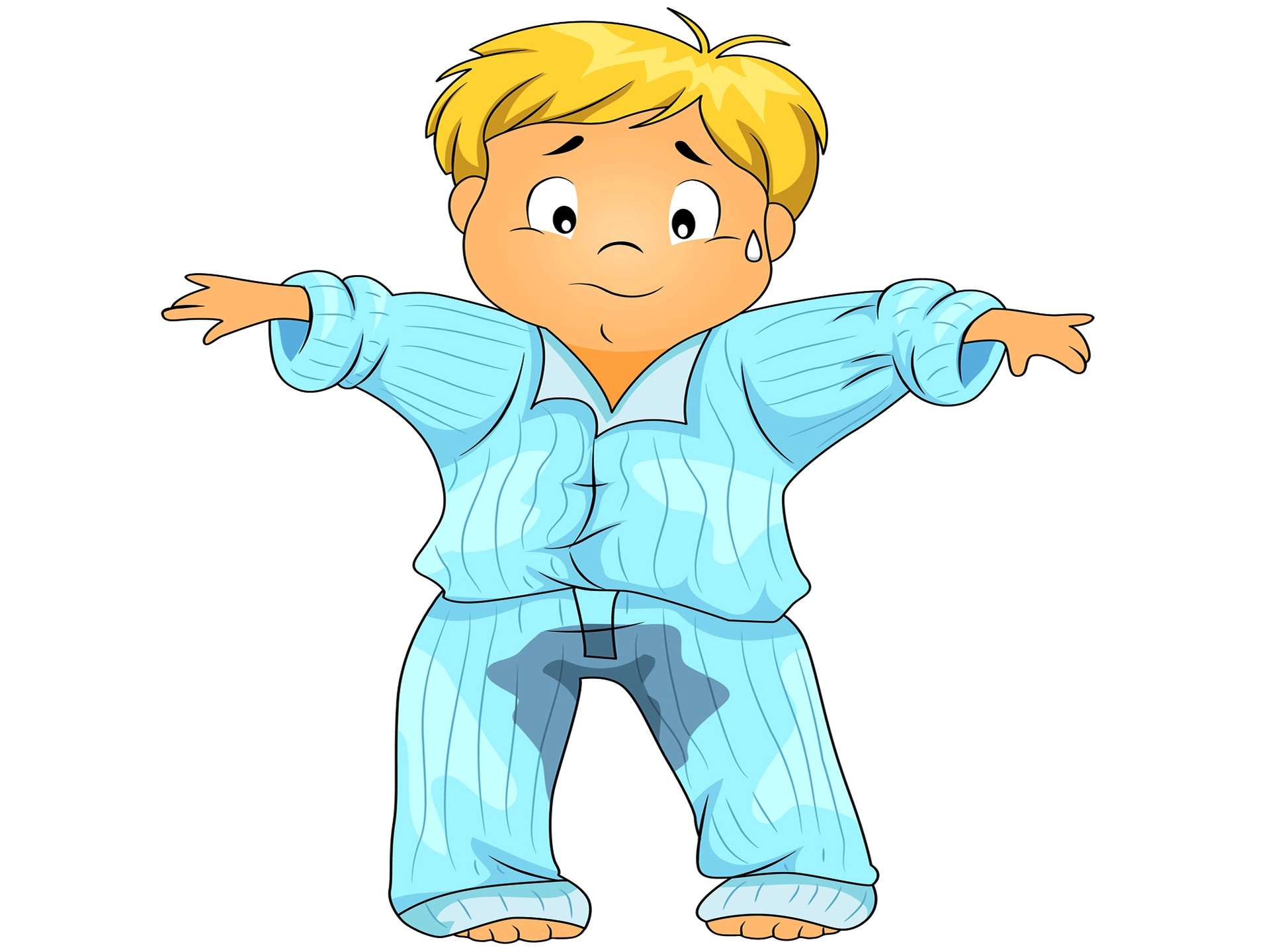Causes and risk factors
The exact cause for bedwetting is not known. It is caused due to delay in development of the function of control over bladder. Inability to hold urine for long, drinking too much of water during bed time along with poor habit of toileting are the major contributing factors Bed wetting due to certain physical causes is rare, lower spinal cord lesions, congenital malformations of the genitourinary tract, Infections of the urinary tract and Diabetes can also contribute to bed wetting. Familial history is seen in some cases.
Clinical presentation:
Bed wetting is classified as Primary enuresis (Children who have never been consistently dry at night) and Secondary enuresis. Children who were dry for at least 6 months and then started wetting again. Parents usually comes up with the complains that their child involuntarily passes urine usually at night during sleep. Most of the times due to prolong wetness the child can also suffer from cold. Although bed wetting does not pose any serious complication on health. However it can lower down the self confidence of the child. Development of rashes on the genital or gluetal region due to prolong exposure to wetness.
Investigations
The diagnosis is done on the basis of the symptoms narrated by the parents and the physical examination carried out by the doctor. Investigations are usually advised to rule out the other causes. Routine urine tests, blood sugar levels for ruling out juvenile diabetes are advised. Certain other investigations can be done to rule out the structural abnormalities. e.g.: renal calculi, stricture of urethra or ureter.
Treatment
Treatment comprises of administration of medicines and use of certain therapies. Therapies like Bed wetting alarms or use of simple alarms to wake up the child or the parents after every 2-3 hours to help the child pass urine have found to be effective. Reassurance to your child that bedwetting is common, making the child understand that he/she should not hold urine and should void as and when there is an urge is necessary. Inculcating habit of voiding urine before sleep, and rewards to the child for dry nights are the effective supportive measures which have found to be beneficial.
Other modes of treatment:
Certain other modes of treatment can also be helpful in coping up the symptom. Taking into consideration the symptoms in holistic way, homoeopathy can offer a good aid for the relief of the symptoms. The Ayurvedic system of medicine which uses herbs and synthetic derivates can also be beneficial in combating the complaints.
Recent update:
According to a new research by Wake Forest Baptist Medical Center Children who start toilet training before age 2 have a three times higher risk of developing daytime wetting problems later.






























